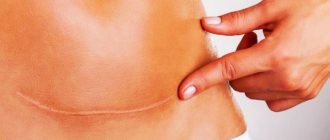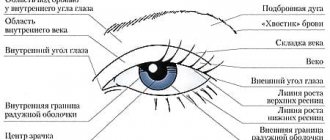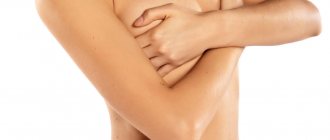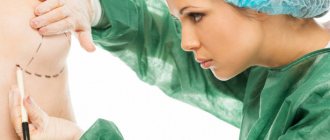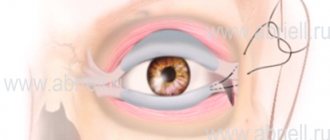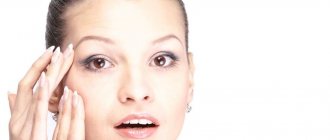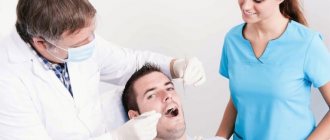Remedy for scars and scars: how to get rid of hated marks
It is necessary to feel attractive.
The feeling of one's own beauty keeps the quality of life at a high level. The confidence of a person who loves himself is instantly recognized by society through his movements, gaze, and gait. Scars and scars can serve as an obstacle to achieving such an internal state. They are unaesthetic and add extra roughness to the appearance. Shyness, constraint, constant frustration due to restrictions in the choice of clothing and the need to apply certain makeup in order to visually hide an unnecessary detail of appearance - all this is an unpleasant reminder of yourself every day.
How to get rid of scars? We will answer in our article.
What you may need for discharge from the maternity hospital
When making a list of things to take to the maternity hospital after a cesarean section, you should take care of the discharge outfit for yourself and your baby. Your own wardrobe is selected taking into account whether a photo shoot and video filming are planned on the day of discharge. The same goes for cosmetics and jewelry. All this is put into a separate bag for checkout. For the child, take a jumpsuit or an elegant envelope corner. In cold weather you will need a warm blanket. In the chaos, it is important not to forget to obtain the documents necessary to register at the clinic and obtain a birth certificate.
Scars and scars: what's the difference?
The concepts of “scar” and “scar” in medicine refer to a dense formation of connective tissue after surgery or mechanical damage.
A scar, or scar, acts as a kind of “lock” after tissue regeneration. It consists mainly of collagen. And it has only one function - to hold living tissue together. Therefore, hair does not grow in the area of scars and sweat glands do not function.
There are several types of scars:
- the scar is level with the skin level - normotrophic. Such a scar does not change the texture of the skin;
- the scar below the skin level is atrophic. Outwardly, it resembles a pit or ditch because it sinks relative to the surrounding skin;
- the scar above the skin level is hypertrophic. Often such a suture can be seen, for example, in the lower abdomen after a caesarean section.
The scar has the unpleasant property of growing and becoming larger than the actual size of the wound. This is called a keloid scar. It does not occur in all cases, and its appearance depends on the specific properties of the skin.
External consequences for the skin after the same operation or mechanical damage can vary greatly. Organisms are all different. And the tendency to scarring of the skin also varies.
That's why someone after appendicitis a year later has a pale scar flush with the skin. And some have a pink-red bumpy path that remains that way for several years.
And in the second case, it is good to combine special exercises for the scar with means that are designed to eliminate its external signs.
Skin glue or threads: how to get the most invisible suture after surgery?
The process of wound healing in plastic surgery is one of the most important stages towards obtaining an aesthetically attractive result. If for general surgery the most important requirement for suture material is to ensure better healing, then for aesthetic surgery, in addition to this, there is also a requirement to minimize the consequences of postoperative wounds, that is, the desire for a complete absence of scars.
Modern suture materials include absorbable and non-absorbable sutures based on synthetic materials such as polydiaxonone, polyglycolic acid, polyglycolic acid, polyglycolic acid, glycolide copolymer, epsilon-caprolactone and others. Natural materials (catgut) are also used, which are made from the tissues of large and small livestock. This suture material is used mainly only when suturing internal organs, mucous membranes, muscles and tendons, and last but not least for suturing external wounds. Because catgut consists almost entirely of connective tissue, it can contribute to the formation of unattractive, large scars.
There is a third type of suture material, which, although relatively new in comparison with threads, is nevertheless widely used today in the work of plastic surgeons in Russia and abroad. We are talking about cyanoacrylate adhesives. Initially, these adhesives were to be used as an alternative to threads for surgery of internal organs and mucous membranes. However, studies have shown that the glue reacts with body fluids and, when disintegrating, turns out to be toxic. At the same time, the glue showed itself in the best and safest way when stitching external postoperative wounds.
Plastic surgery patients are well aware of the troubles they face in the first few days after surgery. In addition to the restriction of movements or the need to sleep only in a certain position, which most patients can easily endure, there are many other unpleasant moments that cause much more significant discomfort - not taking a shower, changing bandages at certain intervals, and finally, removing stitches, which causes many people considerable stress.
Taking this into account, Russian and foreign scientists have conducted a number of studies on how the rehabilitation process proceeds when stitching wounds in the traditional way - with staples or threads and when applying glue, and most importantly, how the final cosmetic effect will differ. Differences also appeared at the stage of the operation, when closing wounds, since working with glue turned out to be less energy-intensive and took less time than suturing, which ultimately did not require additional anesthesia.
It is worth noting that when working with skin glue, traditional suture material is still applied to the skin, but only to stitch the edges of the wound; the glue itself is applied to the main part of it. The whole process doesn't take even five minutes. The first layer of glue dries, after which the doctor applies a second one. For the applied substance to completely harden, you need to wait about 2-3 minutes.
When the wound is closed in the traditional way, that is, with the help of threads, the doctor first applies a suture and then applies special strip stickers that provide better skin tension.
The biggest advantage of glue from the point of view of the patients themselves is that they have relative freedom - for example, they can take a shower without fear of getting the suture area wet, which is impossible when stitching a wound with threads - they cannot take a shower, since the wound area must remain as dry as possible .
In addition to the above, according to research by specialists, patients usually do not show any skin reactions to the glue. The exception is allergic reactions, however, this is specified and determined in advance. However, some patients have a skin reaction to strip stickers.
The most important advantage of the glue, according to surgeons, is that the bacteriological protection of the glue is 95%, and it remains so for 72 hours after surgery - the most dangerous time in terms of wound infection. Then it starts to decline. In addition, the glue does not involve applying any gels or ointments to the wound, which is necessary when stitching the wound with threads.
As for the main criterion - the aesthetic result. So far, the opinions of scientists do not provide an objective and unambiguous answer. Their research shows approximately the same results using both glue and creating traditional seams. Scars 12 or more months after surgery remain similar, provided the initial ones are the same. True, some experts draw conclusions in favor of glue, noting that after a long period after surgery, scars healed with its help look better than those that were traditionally sewn up with threads.
One way or another, it can be stated with certainty that the use of cyanoacrylate glue for closing wounds has significantly improved the postoperative rehabilitation period for patients and made it more comfortable.
You can learn more about plastic surgery in the “Body plastic surgery” section.
Methods for getting rid of scars and scars
For many, it is of paramount importance to make the scar invisible on the skin. In addition, you need to understand that a scar, especially after abdominal surgery, is a deeper formation. And you need to deal with it entirely: taking care of the appearance and developing it “inside”.
Why is not only the visual part of the scar important? After all, the operation has already passed, the body’s condition has returned to normal, and you can relax. The point is adhesions - fibrous compounds that form in places of tissue damage. They can be compared to strong threads or ropes. The consequences of the formation of adhesions differ from the resources of a particular organism and can be both harmless and threatening, for example, curvature of the spine.
At the scar site, blood flow is limited, tissues begin to experience oxygen starvation, and this leads to the formation of adhesions. A simple daily massage is very important here - “draw” crosses along the seam with your fingertips: horizontal and vertical lines. It is good to combine massage with drug treatment in the form of special ointments, which are recommended by the attending physician.
When it comes to eliminating the visual signs of a scar, the best scar treatment may vary depending on your situation. Here it is important to approach the problem individually and, together with a specialist, choose an effective and safe way to eliminate the scar.
Currently practicing:
- drug treatment - the use of ointments, gels and drug therapy with the introduction of the necessary drugs;
- physiotherapy;
- mesotherapy can make a scar invisible by introducing injections into the surface of the scar with nutrients that soften the rough tissue and prevent it from “thickening” and growing;
- laser resurfacing - scar correction occurs by heating the skin to high temperatures and turning it into steam;
- Surgery, or scar excision, is usually used when previous methods are unable to cope with the task.
Scar correction can be supplemented. A specially developed remedy for scars and scars in the form of a silicone patch will help achieve the desired effect.
List of standard things to prepare for childbirth
The exact list of things to take to the maternity hospital after a cesarean section differs in each institution, but the basic set is unchanged. Therefore, you can prepare a standard set, and then supplement it if necessary. Relatives should know where the delivery bag is so that, if necessary, they can quickly bring it (for example, if a pregnant woman is hospitalized from outside her home). In this regard, a pregnant woman should always carry the main identification documents with her. Otherwise, there will be difficulties with registration at the hospital.
The woman is in the maternity hospital awaiting the planned operation. Here she will need:
- pajamas or nightgown made of natural fabric;
- several pairs of underwear;
- a robe, and if the birth occurs during cold weather, a jacket and blanket;
- comfortable slippers;
- dishes (plate, cup, cutlery);
- products for daily personal hygiene (toothbrush and paste, soap and toilet paper, a couple of towels, wet and dry wipes).
Before the operation itself, you may need a razor, absorbent diapers (for examination by a gynecologist), and compression socks.
Silplast: how it works
An important advantage of the plate is that it prevents the worsening of the unaesthetic appearance of the scar. Silplast prevents connective tissue from growing because it prevents the deposition of collagen that forms scar tissue.
And at the same time, it can also be used effectively on old scars. Why? Silplast is a plate made of the thinnest layer of silicone with compression properties. Optimal moisture for scar resorption is created in the connective tissues.
Silplast should be worn for several months. At the same time, the patch practically does not affect the usual way of life - due to its thinness, it does not hinder movements, and the hypoallergenic special glue does not allow it to come off. You can even go to the pool and gym with it.
Composition and characteristics
The basis of the cosmopor e dressing is non-woven perforated white polyester. The material is characterized by increased softness, which eliminates any irritating effect on the damaged area. In addition, it is characterized by good breathability. This ensures that the healing rate is maintained.
The inner side of the patch is made in the form of a special pad. It absorbs discharge from the wound, but does not stick to damaged skin. Reliable fixation of the bandage is ensured by an adhesive rubber base on the edges. The patch can be easily removed from the skin during dressing without any traces and does not injure the skin.
Each individual dressing is placed in individual packaging, which ensures that it remains completely sterile until the moment of use. Cosmopore patch is produced in a wide variety of sizes, so it can be used to treat wounds of various sizes.
Reviews about Silplast
1. “I have a slightly unusual reason for using the Silplast patch. I use it after tattooing. I am very glad that such an invention exists. It’s really convenient: you can shower in it and sweat in the gym. Doesn't sting or itch. The main thing is to change it in a timely manner and treat the scar.”
2. “I started using Silplast with a scar that had already formed for a long time. The thing is, my cesarean section scar was over a year old, and it was still raised, red-pink, and had a lump of skin on one end. I was warned that I would need to wear this patch for several months. The most amazing thing is that I have been wearing it for only three weeks and have already noticed the first improvements! The scar has turned pale! Looking forward to the final result now"
3. “The doctor advised me to use Silplast as soon as the stitch heals after the operation. He explained this by saying that this special patch would prevent the scar from becoming huge and red. I was worried about sensitivity at first. The seam was unpleasant to touch. But he exceeded all my expectations. Invisible both in sensations and visually. Very thin, very. And at the same time it sits firmly on the skin and does not come off, even if it rubs against clothes. And you can wash in it. And the main effect is that the seam is thin, even and pale!”
Indications
Cosmopore medical dressings are in demand in surgical and traumatology practice. They are widely used for dressing wounds in the postoperative period in the presence of severe discharge and bleeding.
In addition, the Cosmopore patch is prescribed for use in the treatment of bedsores in patients who have to lie down for a long time. They are also indicated for the treatment of trophic ulcers in the acute stage.
The Cosmoport patch is recommended for use after a caesarean section. When using it, it is possible to reliably protect the seam. Thanks to the secure fixation of the bandage, you can shower and feel comfortable during the recovery period.
Cosmoport dressings are indicated for cases when it is necessary to treat wound surfaces with a high risk of infection. They are prescribed for lesions with a large amount of exudate. Cosmopor patch is also used when it is necessary to fix bandages on which a special wound healing agent is applied.
Doctor about Silplast
“The effectiveness of the Silplast patch depends on the correct approach to its use. Silplast must be used daily for six months, depending on the specific situation. Remember that one patch is enough for five, maximum seven, days. Then it stops fitting tightly to the skin and needs to be replaced. When replacing the patch, the skin must be treated and dried.
I also recommend consulting with your doctor and, if required, using specially developed gels and ointments under the patch. Don't be afraid to peel the patch off your skin. Silplast can be peeled off and glued on several times a day. The main thing is to wait for the drug to dry on the skin before re-applying the patch."
Usage
It is important to choose the right cosmopore dressing according to the size of the wound. When applying the patch, the following recommendations must be observed:
- Holding the package with the patch by the edges, you must carefully open it.
- The patch should be removed from the packaging, and then the paper layer on one side should be removed.
- The bandage is carefully fixed on the edge of the wound and smoothed, lightly pressing the skin.
- After this, the paper layer on the other side of the bandage is removed and complete fixation is performed.
It is important that the pad, which is located in the center of the bandage, completely covers the wound. The timing of replacing the patch depends on the nature of the damage. But at the same time, the procedure should be carried out at least once every 3 days. The timing of replacing the cosmopore dressing is affected by the size of the wound and the volume of discharge. In addition, the location of the damage should be taken into account.
General recommendations for packing your bag
The list for admission to the maternity hospital after cesarean section is compiled taking into account the requirements of a particular medical institution. Too many things are not taken because it makes it difficult to find what you need. If you have any doubts about whether you will need this or that item, you should leave them at home. If necessary, relatives will bring the missing items later. It is better if a woman packs her bag on her own, because this way she will know what is in there and where.
The choice of the bag itself depends on the number of things and the requirements of the maternity hospital. Lots of packages are not welcome anywhere. It is better to take compact, roomy models that will fit in a cabinet or under the bed. It’s good when the bag has different compartments - it’s easier to distribute the items needed before and after childbirth. You can choose a separate bag for your baby's things.
